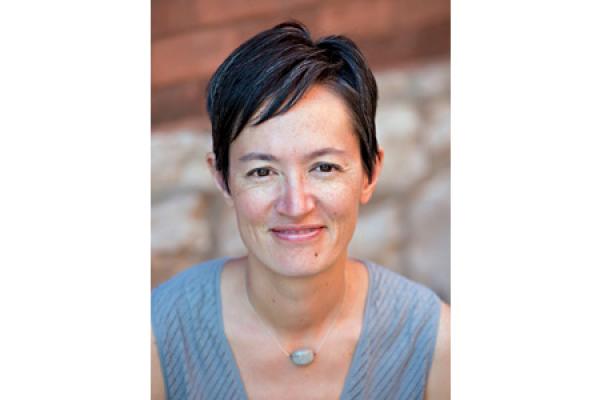Madokoro's 'Elusive Refuge' wins Mershon Center's Furniss Book Award

The 1949 Chinese Communist Revolution is a subject of inexhaustible historical interest, but the plight of millions of Chinese who fled China during this tumultuous period has been largely forgotten.
Laura Madokoro recovers the history of China’s 20th century refugees in Elusive Refuge: Chinese Migrants in the Cold War (Harvard University Press, 2016), winner of the Edgar S. Furniss Book Award, given annually by the Mershon Center for International Security Studies.
Madokoro will speak about "On Refuge: The Politics of Race and Humanitarianism" at 3:30 p.m. on Thursday, November 8, 2018, at the Mershon Center, 1501 Neil. Ave. Read more and register
Focusing on humanitarian efforts to find new homes for Chinese displaced by civil strife, Madokoro points out a constellation of factors — entrenched bigotry in countries originally settled by white Europeans, the spread of human rights ideals, and the geopolitical pressures of the Cold War — which coalesced to shape domestic and international refugee policies that still hold sway today.
Although the United States, Canada, Australia, New Zealand, and South Africa were home to sizeable Asian communities, Chinese migrants were a perpetual target of legislation designed to exclude them. In the wake of the 1949 Revolution, government officials and the broader public of these countries questioned whether Chinese refugees were true victims of persecution or opportunistic economic migrants undeserving of entry. It fell to NGOs such as the Lutheran World Federation and the World Council of Churches to publicize the quandary of the vast community of Chinese who had become stranded in Hong Kong.
These humanitarian organizations achieved some key victories in convincing Western governments to admit Chinese refugees. Anticommunist sentiment also played a role in easing restrictions. But only the plight of Southeast Asians fleeing the Vietnam War finally convinced the United States and other countries to adopt a policy of granting permanent residence to significant numbers of refugees from Asia.
The Furniss Award commemorates the founding director of the Mershon Center, Edgar S. Furniss, and is given annually to an author whose first book makes an exceptional contribution to the study of national and international security. Previous winners include John Mearsheimer, Barry Posen, and Stephen Walt.
Elusive Refuge was also recognized with the Association of Asian American Studies’ Best Book in the Social Sciences for 2018, and the Chinese Canadian Historical Society’s Ed Wickberg Prize.
Laura Madokoro is assistant professor of history and classical studies at McGill University. Her research explores various facets of the history of refugees and humanitarianism. She is especially interested in questions relating to settler colonialism, human rights and race.
Madokoro's current research, funded by the Social Sciences and Humanities Research Council of Canada, explores the history of sanctuary in Canada from the 17th century to the present, with a focus on post-Confederation sanctuary practices among a variety of religious and secular communities. Her plan is to eventually build towards a larger translocal history of sanctuary among white settler societies.
In addition to her award-winning book, Madokoro is author of a number of articles related to the history of migration and humanitarianism. She has published widely, including in Photography and Culture, Social History / Histoire Sociale, Journal of Refugee Studies, Canadian Historical Review, Journal of the Canadian Historical Association, and Urban History Review. She is also co-editor of the Dominion of Race: Rethinking Canada’s International History (UBC Press, 2018), in which she also authored a history of Canada’s ambivalent relationship to the international refugee regime. In a related vein, she is a co-investigator with the Landscapes of Injustice project on the history of Japanese Canadian property dispossession in World War II.
As someone who cares deeply about the political implications of the historical craft, particularly as they relate to contemporary events, Madokoro has also contributed a number of comment pieces to The Globe and Mail, National Post and www.activehistory.ca.
Madokoro completed her Ph.D. in history at University of British Columbia in 2012 with support from SSHRC and the Trudeau Foundation and spent the following year with the History Department at Columbia University as a SSHRC postdoctoral fellow.
